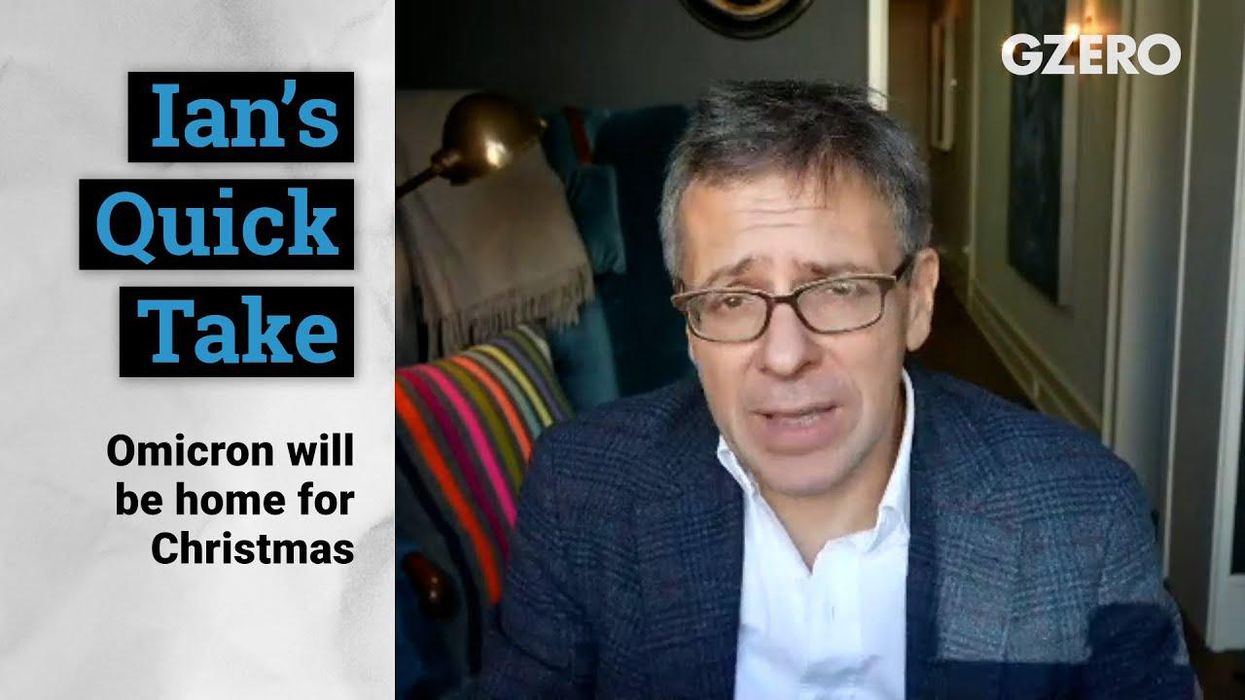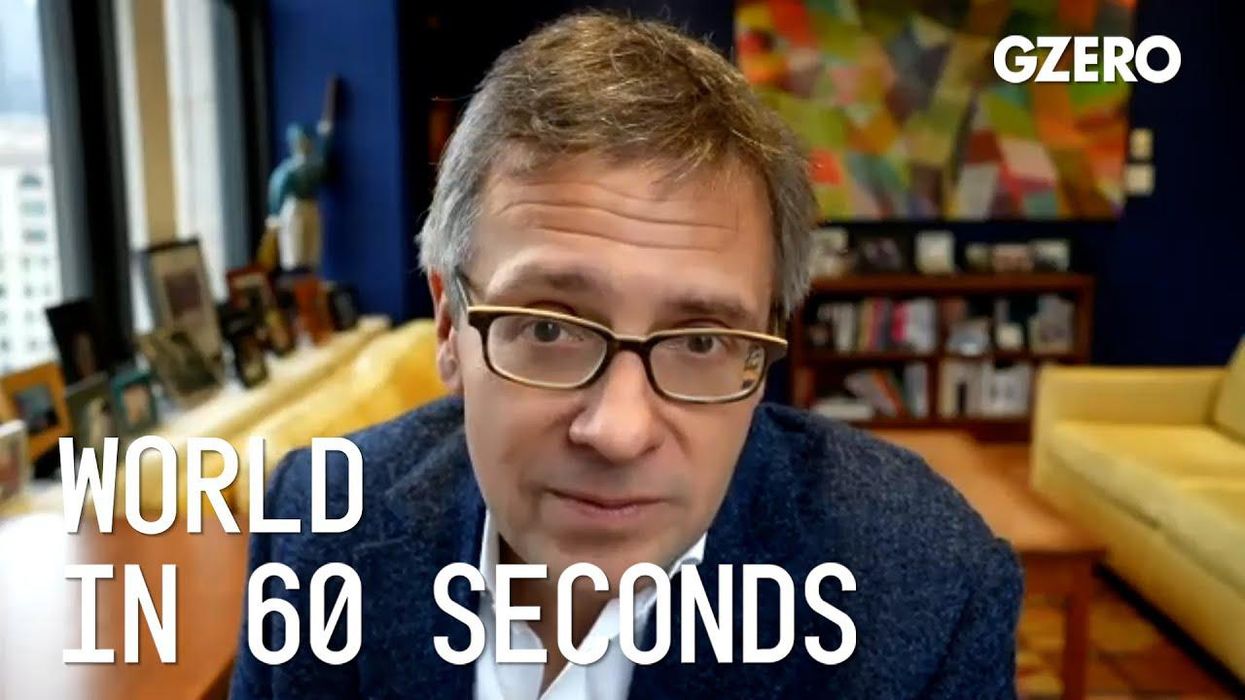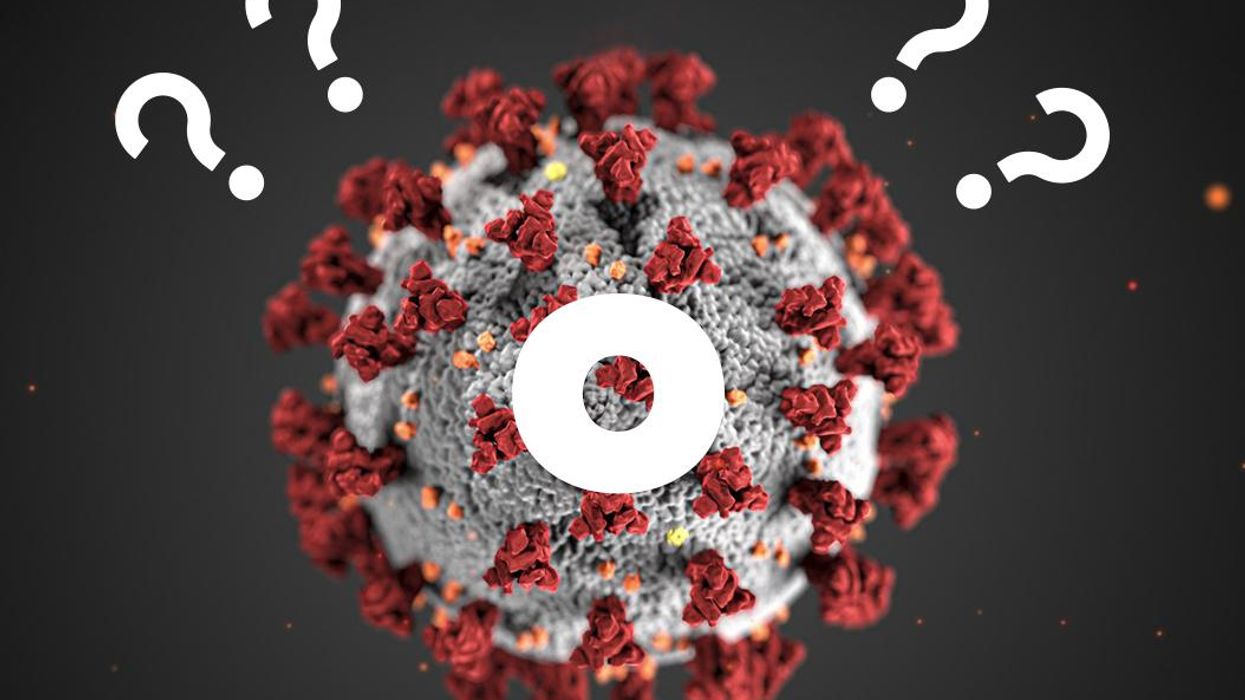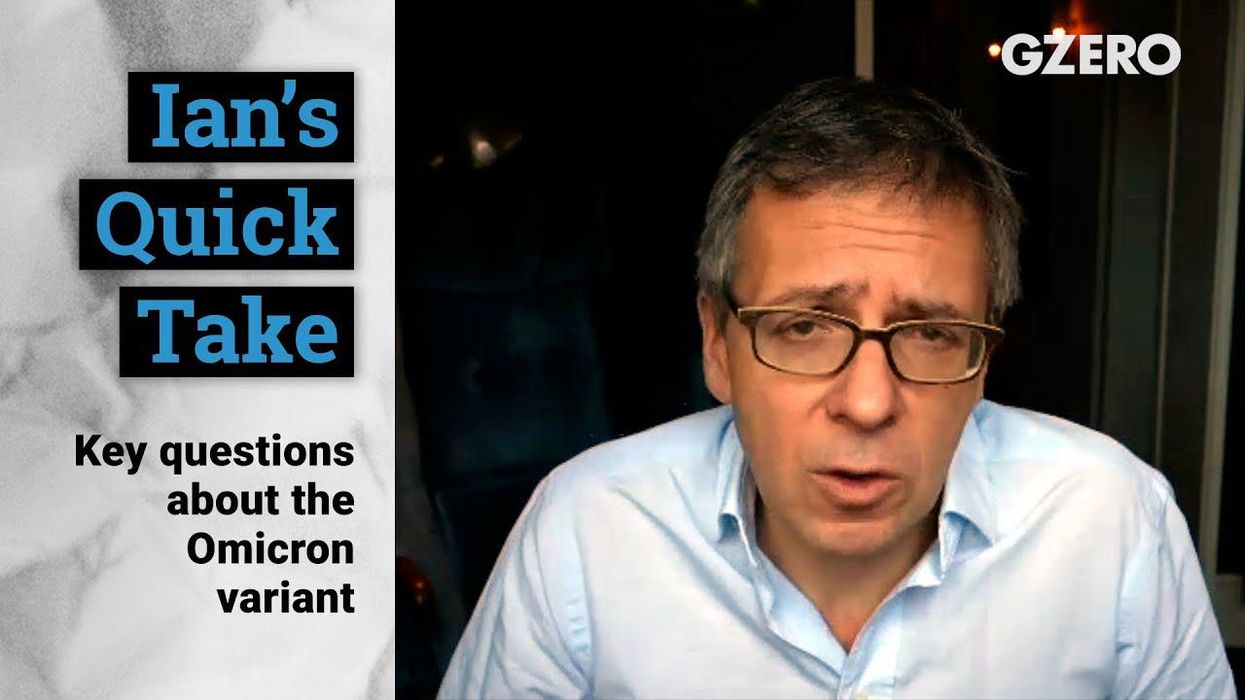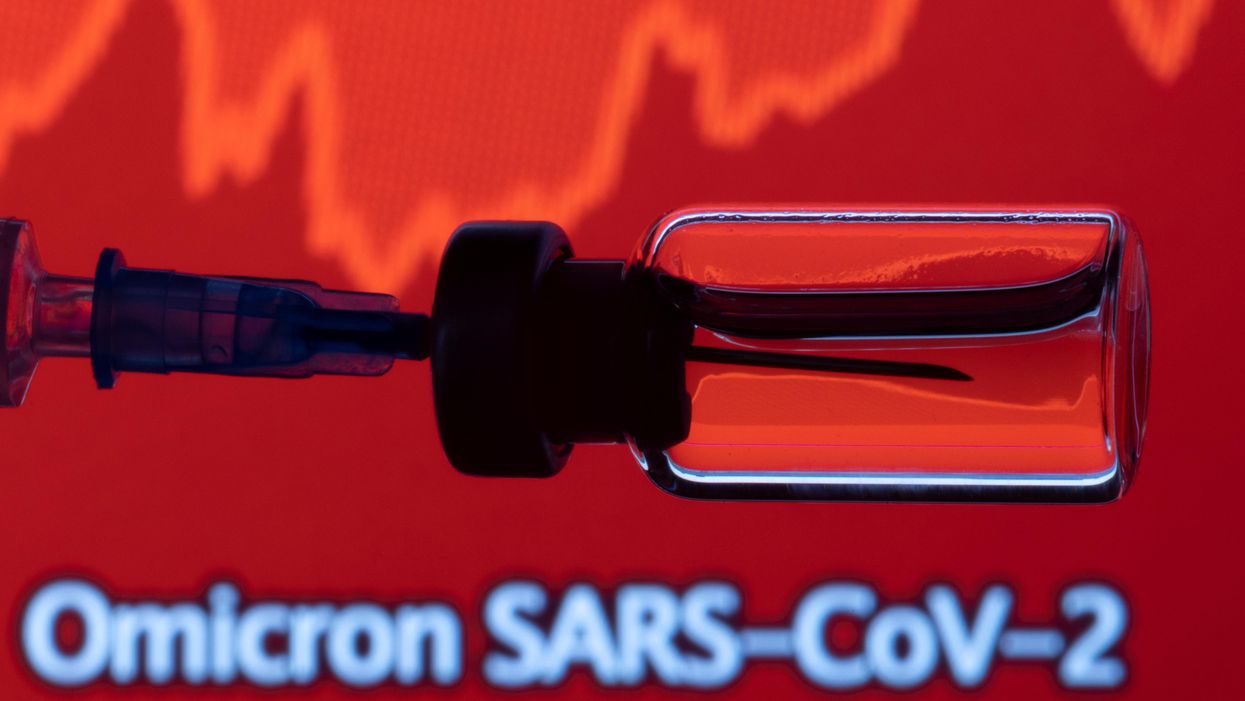Quick Take
Omicron will be home for Christmas
Ian Bremmer's Quick Take: We are in the midst of very significant learning on the omicron variant, and I thought I would share what we know and what we really don't know, because the headlines obscure that.
Dec 13, 2021
